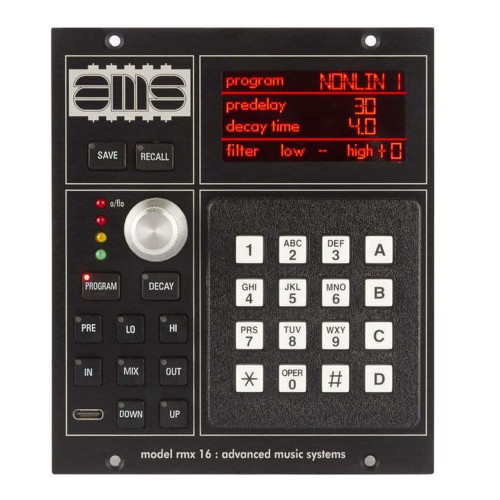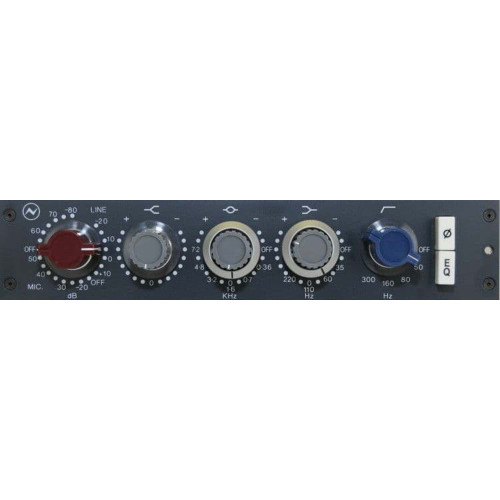The AMS RMX16 was the world’s first microprocessor-controlled, full-bandwidth digital reverberator and characterized enormous numbers of seminal recordings from the 1980s onwards. It has remained an essential piece for any self-respecting studio ever since, and units sell today for a substantial proportion of their original cost due to great desirability.
Designed from the outset to be musical rather than simply implementing mathematical algorithms, each program was tuned and re-tuned to provide as wide a “sweet-spot” of settings as possible by means of “carpet graph” parameter tables, interactively linked control by control. It was designed by ear over an extended period of time and from first principles and this is what has made it a classic. Despite its longevity, there is little more any present-day design could better and its sound is unique and instantly recognisable.
Now available in a 500 series format, the sound once available only to premier studios is now on tap for a much wider user base. In addition to the 9 standard programs, there are 9 aftermarket programs available to RMX16 users via the unique and now elusive remote control. These 9 extra programs are included in the AMS RMX 16 500 Series Digital Reverb Module.
- High-performance 32-bit DSP processing and 24-bit, 48KHz sampling with premium A/D and D/A converters.
- Over 100dB dynamic range with +22dBu of headroom.
- Adjustable input and output levels for optimum signal to noise performance.
- Low power consumption (and therefore cool running).
- Independent control of each program’s fundamental reverberant parameters.
- Nudge Buttons to increment or decrement data for all selectable reverberation functions.
- Alphanumeric program descriptions for ease of use when storing or recalling information for the unit’s memory.
- New rotary push encoder enabling all parameters and settings to be adjusted by ear.
- New wet/dry mix blend function.
- New save/recall feature with 100 user-defined memory slots.
- Compatible 500-series rack/enclosure with Power Supply and line-level input/output connectors required, not supplied.














